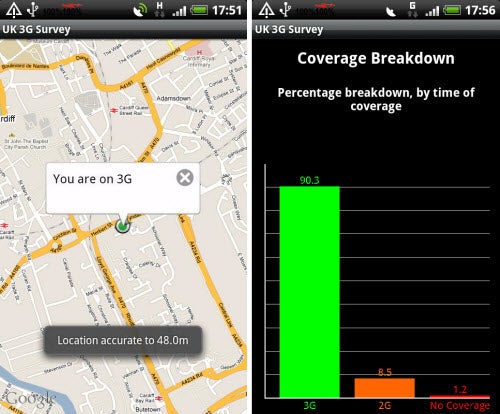Why WiFi Must Bridge the Gap to 4G

Last month we asked What’s Really Wrong With UK 3G Broadband? This month its shortcomings are being highlighted once again as Virgin Media announces its vision to install city wide free WiFi…
The backdrop is simple. On Wednesday Virgin confirmed it is in “quite advanced negotiations” with London councils to equip the UK capital with blanket WiFi in the “not too distant future”. Unlike rivals such as BT Openzone and The Cloud, Virgin would make the service free. Virgin customers get access speeds of up to 10Mbit, non-Virgin customers get 0.5Mbit. 
Virgin Media CEO Neil Berkett described the plans as “a punt” which will cost the company “a few million pounds” and “keep them [BT] honest”. In truth the strategy is far more than turning up late to the party. Instead it is a potential masterstroke by Virgin to cash in on the deep routed flaws in the UK’s 3G network. The move comes down to two things: speed and timing.
Virgin Media has speed to burn. Its expensively assembled optical cable network consistently outperforms rivals and its customer base is spending ever more. The problem is the number of Virgin customers is falling and it needs a differentiator to not only woo them back, but win favour with the masses. This is where timing is crucial because it determines the target and right now there is no easier dead horse to beat than 3G.
Britain’s 3G networks are buckling against demand. The fastest theoretical download speed in the UK is 7.2Mbit HSDPA. This bandwidth is broadcast by a carrier’s base station and split between every user in its vicinity. There are 10s of 1000s of base stations nationwide, but it only takes one or two users to begin streaming video or downloading content to drag any base station to a standstill. Regardless of the strength of 3G signal, you’re stuffed – and it is getting worse.
According to Ofcom just over half of the 13.6m mobile phones sold in Britain from January to June 2011 were smartphones. Furthermore they are being used increasingly heavily. 60 per cent of teenagers and 37 per cent of adults owning smartphones described themselves to Ofcom as being “highly addicted” to their devices.
“Our research into the use of smartphones, in particular, reveals how quickly people become reliant on new technology – to the point of feeling addicted,” said James Thickett, Ofcom’s director of research. “As more and more people acquire smartphones, they are becoming an essential tool in peoples’ social lives whether they are out with friends socialising or using Facebook on the move.”

